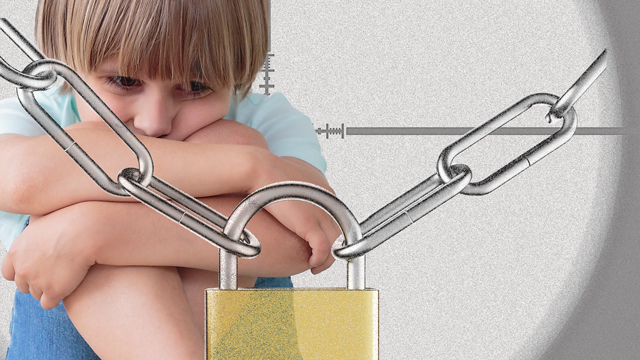I have to admit, I’m one of those parents who hugs her child a little tighter before school every morning. My daughter is in second grade and the thought of the Newtown and Parkland shootings, among others, is always somewhere in my busy mom mind. Usually, it’s tucked way back in the corner, but it’s there. In 2019, a firearm was discharged on school property causing injury or death twenty-five times, according to Education Week. Of those twenty-five incidents, seven took place inside a school building. I am a realist and know the chances of a school shooting happening are slim.
I also know there are a lot of drills and safety precautions mandated at my daughter’s school.
Lockdown drills, or as they are called in my daughter’s school system, “lock and hide” and “lock and teach” drills, are a part of every student’s academic life. In Virginia for this school year, every public school is mandated to carry out two lockdown drills in the first twenty days of the school year and at a minimum, two more during the remainder of the school year.
But more and more, these drills – which are intended to keep children safe in the event of an emergency – are being called into question for the potential distress they might cause.
Earlier this year, the American Federation of Teachers and the National Education Association, two of the largest teachers’ unions in the country, called for an end to active shooter drills, saying they can harm students’ mental health more than they help prepare them for an emergency. It is important to note that this is a call to end unannounced drills and drills that simulate gun violence because of a lack of research into their effectiveness.
What the Science Says
That’s something Brian Meyer, PhD, a clinical psychologist in Richmond, stressed. “I do think we’ve gone overboard in implementing laws and policies across the board that we do not have research to support and may cause harm to some children.”
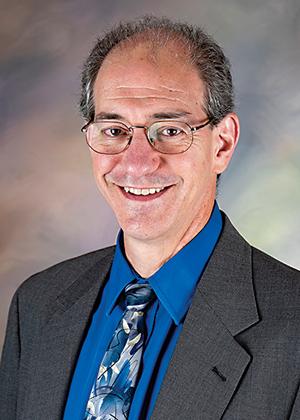
Dr. Meyer says there is no current research related to whether school lockdown drills are helpful or harmful. He adds that there is clinical evidence that indicates there are three main groups of children who could be at risk of psychological harm because of these drills: children who have already experienced trauma, children who have anxiety, and children with different types of developmental disabilities.
Dr. Meyer explained that in a real shooter situation, the part of our brain called the amygdala is triggered and sends us into a flight, fight, or freeze mode. The purpose of the drills is to override that reaction with rational thought. The problem is that the prefrontal cortex, the part of the brain that controls rational thought, is only 60 percent developed in 16-year-olds. He says, “A 5-year-old can’t sit there going, ‘Oh, this is a drill, I’m really okay.’”
What Educators Say
While kids’ reactions to drills can be unpredictable, teachers are practicing what to do and how to communicate that to their students. That’s something Chesterfield County kindergarten teacher Jessica Harrington says is important. “As a teacher for over a decade, I have practiced tornado drills every year. Last school year, when there was an actual tornado, I was confident in my ability to carry out the plans for keeping the children safe.”
Harrington says that experience reinforced why all of the safety drills, including the lockdown drills, are important. “I absolutely feel responsible for the safety of my students,” says Harrington. “I think through the drills we practice together. I ask a lot of ’what if?’ questions to myself, colleagues, and administration to ensure that the choices I make help keep my students safe.”
She says most of the time, she is given advance warning about when the drills will take place so she can plan around them. Afterwards, the class talks about how the drill went, then it’s back to work. “Because drills are such common practice, there is not much of a distraction,” Harrington says.
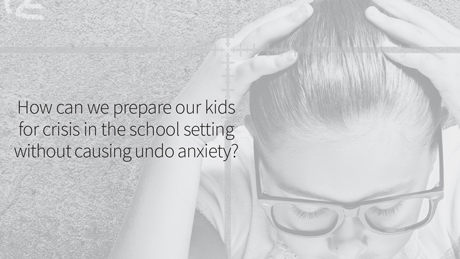
Chesterfield calls lockdown drills safety drills because of their intention to keep students safe. Harrington says she and her students practice safe habits every day so the kids don’t negatively react to a safety drill. There are no simulations of violence during the drills Harrington participates in at her school.
Henrico County Public Schools has a similar goal. They want teachers and students to learn the life skill of responding to a crisis that can then be applied in any setting. Henrico County Public Schools Emergency Manager Christine Bailor says, “We want people to not have to make a plan suddenly and under duress that they have not thought about or tried before.”
Bailor says they only use volunteers when conducting full-scale exercises, drills with simulated shots, banging on doors, police with guns, etc. That means all of the participants have agreed to be a part of the drill in advance and are aware there will be simulations, and all children involved have received permission from their parents. For what they call functional exercises, the drill is announced before it happens.
Bailor is a former police officer. Her department with the school system was formed after the deadly shooting at Virginia Tech. Since 2008, Henrico County has studied and enhanced the drills. Bailor’s team participates in state and national training and works with groups like Virginia’s Department of Criminal Justice Services and The Virginia Center for School Safety.
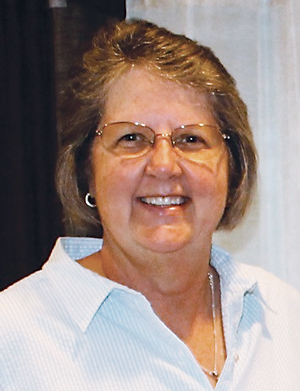
Bailor says they aim to train what’s called the crisis brain. “For every drill we do, we don’t just do the drill. We really try to come up with best practices and see any time a real incident has occurred where that procedure would be used and study that.”
Henrico County Public Schools works closely with law enforcement to develop and execute the drills. Bailor says, “We made a concerted effort to develop our plans together and to train together so that each would know what the other would do. The only way to test that is through drills.”
And she says the training is paying off, as the students demonstrate good practices during drills. She also says the county receives very few complaints from parents about students experiencing distress.
Because statewide mandates only apply to public schools, private schools like Veritas in Richmond have more freedom with their drill policies. Keith Nix, the head of school at Veritas, says they conduct two lockdown drills in addition to two tornado and five fire drills over the course of the academic year. He says the school relies on advice from professionals, general common practice, and local law enforcement to set the frequency and type of drills. “We do drills in such a way that there is minimal interruption to class. Students are, therefore, not given to fearful reaction. Teachers know what additional measures they are to take if a real lockdown situation occurs, but students have no need to practice those.”
Nix says feedback from parents has been largely positive. “Parents appreciate our attention to this and our intentionality around not making this emotionally difficult for students.”
Keep the Kids Talking
So how can we make sure our kids are prepared for crisis in the school setting without causing undo anxiety? Dr. Meyer says to let your children lead in the discussion of these drills. Kids will follow your emotional lead, so if adults are upset and reacting negatively to the drills, it’s likely your kids will be anxious, too. “If we as parents make a big deal out of it, younger children especially will react with more fear about these things because they’re looking to us for the cues,” he says, “which is also why we want them to look to the teacher and what the teacher says.”
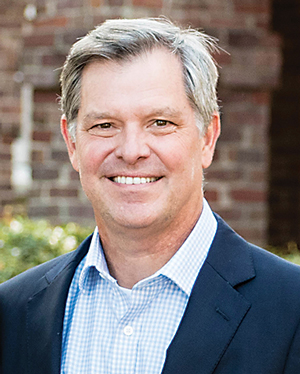
So far, my 8-year-old is not fazed by these drills. I rarely hear about them from her; more often, it’s other adults (associated with the school) who happen to be there while the drill takes place who are affected. But as her awareness for what is going on increases, her worry might, too. Dr. Meyer says to pay attention to your child’s distress signs. Different children will react differently based on their age and personality. Some distress signs are aggression, acting out, fear, bed-wetting, avoidance, yelling, or crying. If you notice that something is bothering your child, ask open-ended questions that aren’t pointed or anxiety-provoking like: Did anything different happen at school? How did you feel about being at school today
Dr. Meyer also says it’s important to teach our middle and high schoolers to talk to an adult about suspicious behavior. “It’s not being a snitch, it’s being safe because otherwise people can get hurt,” he said. Meyer referenced a 2019 study by the US Secret Service that found most attackers communicated their intent to attack. Although the study showed there was no single profile of a shooter, the attackers did have one thing in common. “In almost every case, the person had given signs that they were going to do something,” Dr. Meyer said, “In almost every case, they had told somebody, and that person didn’t tell other people, and it came out later that they had in fact done it.” Henrico County Schools is working toward implementing an app for reporting that can be used for anonymous 2-way communication to voice safety concerns.
What the Lawmakers Say
Going forward, parents should be more in the loop regarding drills. A new law in Virginia (on Governor Ralph Northam’s desk at press time) mandates that parents be notified at least twenty-four hours in advance of any drill. Delegate, teacher, and parent Schuyler VanValkenburg introduced the bill that he calls a common sense measure, and it received unanimous support in the House of Delegates and Senate. The notice would not give away the exact time of the drill but would give parents time to have a conversation with their kids if they think that is warranted.
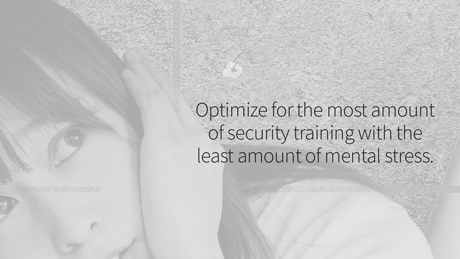
He says feedback from parents encouraged him to create the legislation, “We had a couple of high-profile incidents in Western Henrico County around lockdown drills and fears if they were real or not… and parents came to me with the idea.”
Delegate VanValkenburg worries that the cumulative effect of these drills is taking its toll on our kids. With his legislation mandating parental notification before lockdown drills becoming law, he anticipates this measure will increase communication between schools and parents and initiate broader conversation about how lockdown drills are conducted. “I think if everybody is on the same page and everybody knows what you’re working toward, that will make schools safer,” says VanValkenburg.
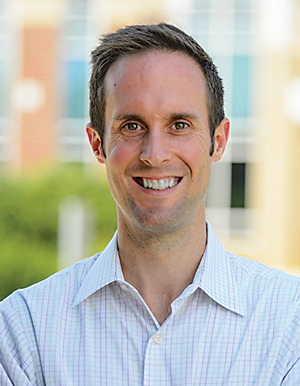
One thing is clear to me after talking to teachers, parents, administration, and a lawmaker: The best interest of the students always comes first. The challenge is optimizing for the most security training with the least amount of mental stress for children. Dr. Meyer says research on this type of situation is very difficult to conduct because children need to have special permissions and many school systems are hesitant to let researchers critique their protocols. So it is up to us as parents to keep a level head and maintain the lines of communication between us, the schools, and our children.


